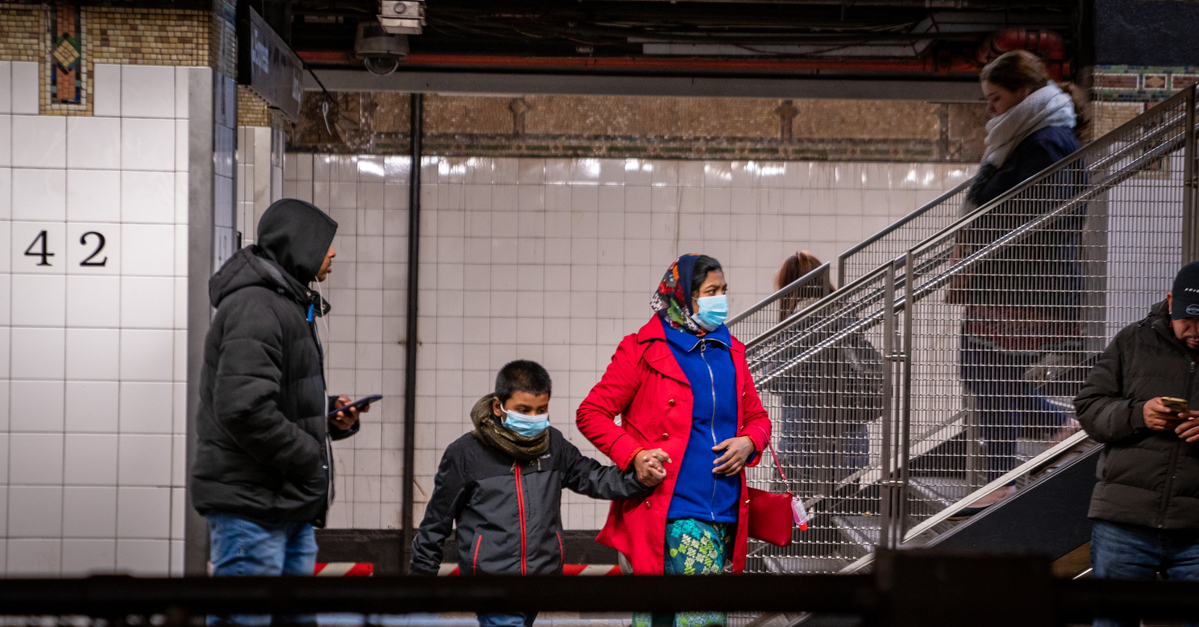
A lawsuit filed Sunday by the ACLU marks the first time the advocacy group has sued to challenge coronavirus regulations in a U.S. jurisdiction. The lawsuit, which requests an injunction against curfew regulations, was filed in Puerto Rico, and could be a harbinger of coronavirus litigation arriving to our mainland shortly.
The ACLU, with three Puertorican citizens, sues the government of Puerto Rico, seeking to overturn unconstitutional provisions in the governor’s latest “lockdown” executive order.https://t.co/3vxPvFmiPS
— prinvestigates (@prinvestigates) April 5, 2020
The curfew, ordered March 15, orders individuals to their homes from 7 p.m. to 5 a.m., with very limited exceptions for obtaining food, medicine, health care, or bank services. Anyone found to violate the order faces a $5,000 fine or a six-month jail term. It also prohibits those who are not part of a “family nucleus” from gathering together.
The lawsuit argues that the rules are vague and confusing; according to its allegations, individuals are afraid that they will be arrested for providing important care – such as insulin injections– to nearby close family members. The “family nucleus” rule, it alleges, defines “family” is unclear and improper.
While the uncharted territory of this global pandemic does raise many novel questions of law, the ACLU is clear: abuse of power is nothing new. Vowing to call out COVID-related government exploitation, the ACLU wrote in its complaint, “History teaches that our government is most prone to committing abuses in times of crisis, and we must ensure that broad presidential powers are not misused beyond legitimate needs.”
Puerto Rico Governor Wanda Vázquez appears undeterred by the lawsuit, saying she hasn’t read the complaint, but that she, “would take any and all measures to protect Puerto Ricans.”
Furthermore, Vázquez tightened the regulations even more as Holy Week approaches. All business, including supermarkets and banks, are ordered to close from Good Friday through Easter Sunday; just pharmacies and gas stations may operate, and individuals are only permitted outside for medical care or an essential service. Also, masks will be required for entrance into any business until further notice.
The ACLU’s lawsuit, filed in Puerto Rico’s Court of First Instance, may well be the first of many like it. As the U.S. death tolls rise and the need for stricter quarantine regulations becomes more dire, American federal, state, and local officials are likely to respond by imposing stricter legal rules. While the backdrop of a global health crisis surely means that some regulations will survive legal scrutiny, challenges like the one the ACLU raised in Puerto Rico have potential to gain traction here as well.
The primary issue raised in the ACLU’s lawsuit — vagueness– is an important one in the context of American constitutional law. Under the vagueness doctrine, laws are void when they are too vague for an average citizen to understand. If individuals are unclear as to whether their activities are proscribed, that confusion may amount to a sustainable legal challenge. In other words, even when the government has the authority and the reason to do something, it needs to be done right.
[image via David Dee Delgado/Getty Images]
Have a tip we should know? [email protected]